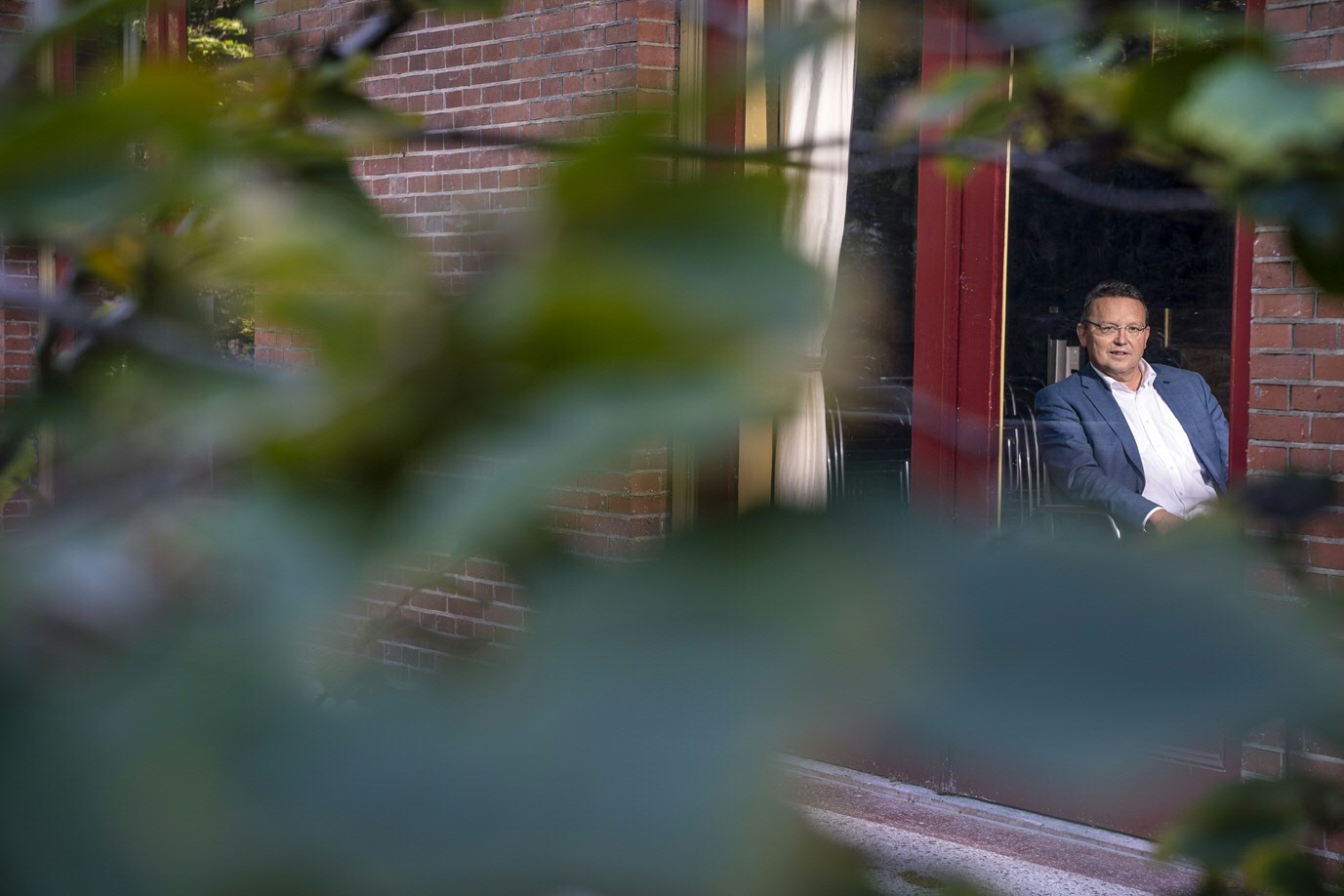‘Wij vertrouwen op de creativiteit en veerkracht van onze universiteit’ - Interview met het CvB
Opnieuw zijn de coronateugels aangehaald. Voor veel medewerkers en studenten voelt het als een stap terug. Een gesprek met CvB-leden Jouke de Vries, Cisca Wijmenga en Hans Biemans over bestuurlijke worstelingen, de route naar een nieuwe universiteit en de impact van corona op hun persoonlijke levens.
Tekst: Riepko Buikema, Afdeling Communicatie, foto’s: Reyer Boxem
Daar zat hij dan, half maart. De universiteit gesloten voor fysieke bijeenkomsten met een bestuur in crisisstand. Aan de keukentafel ziet Biemans dagelijks de gevolgen van zijn bestuurlijke besluiten. Zijn vrouw doceert aan de RUG. ‘Ik zag van nabij hoe zij met de ondersteuning van Educational Support and Innovation ging pionieren om binnen een paar dagen een lesprogramma op te zetten. Net als veel collega’s kon zij heel snel schakelen, maar na verloop van tijd wordt dat zwaar. De oplossingen zijn niet simpel. Online lesgeven vraagt ontzettend veel van onze mensen, van hun mentale weerbaarheid. Docenten stellen hoge eisen aan zichzelf, studenten zien die inspanningen ook, maar tegelijkertijd worstelt iedereen met het gevoel: dit is minder dan ik had verwacht. Het is waardevol om als bestuurder die emotie te zien en te voelen.’
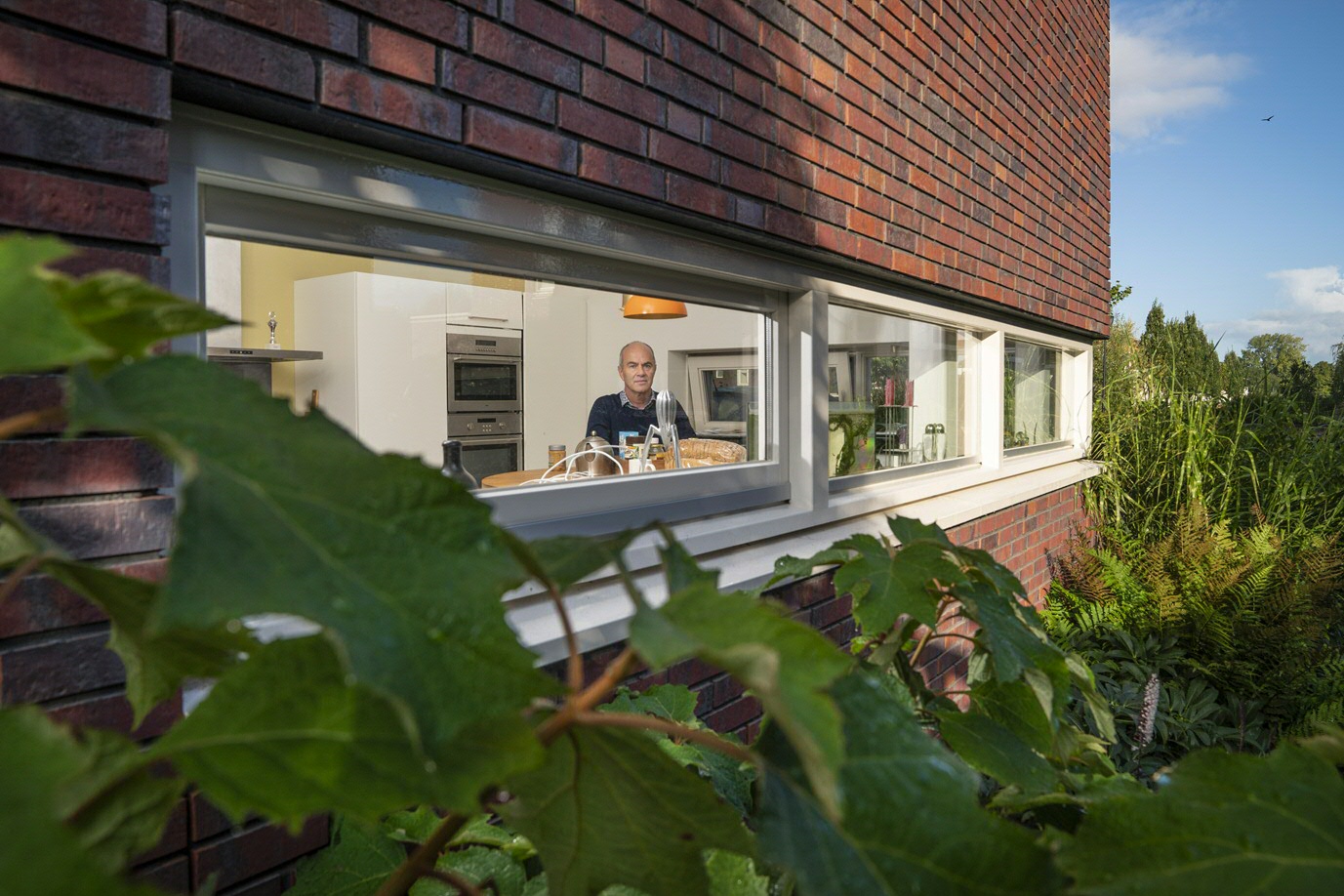
Barrières wegnemen
De feedback over de dagelijkse gang van zaken, vaak afkomstig uit haar informele gesprekken met collega’s en studenten, dat is wat rector Cisca Wijmenga momenteel het meest mist. ‘Tijdens mijn kennismakingsronde langs alle faculteiten en diensten ontmoette ik een prachtige diversiteit aan mensen. Ik genoot van hun passie voor het werk. Ik denk niet dat ik super veel bijdraag aan hun werkgeluk, maar die gesprekken waren een goede manier om te horen waar wij als bestuur barrières kunnen wegnemen. Dat gaf mij veel energie. De gesprekken in de wandelgangen, bijvoorbeeld rond de oraties die ik wekelijks voorzat, zijn nu volledig opgedroogd. Het is daardoor veel moeilijker om zicht te krijgen op wat er speelt. Ik word nog steeds gevoed vanuit reguliere overleggen met de decanen of de Young Academy, maar die spontane ontmoetingen mis ik enorm.’
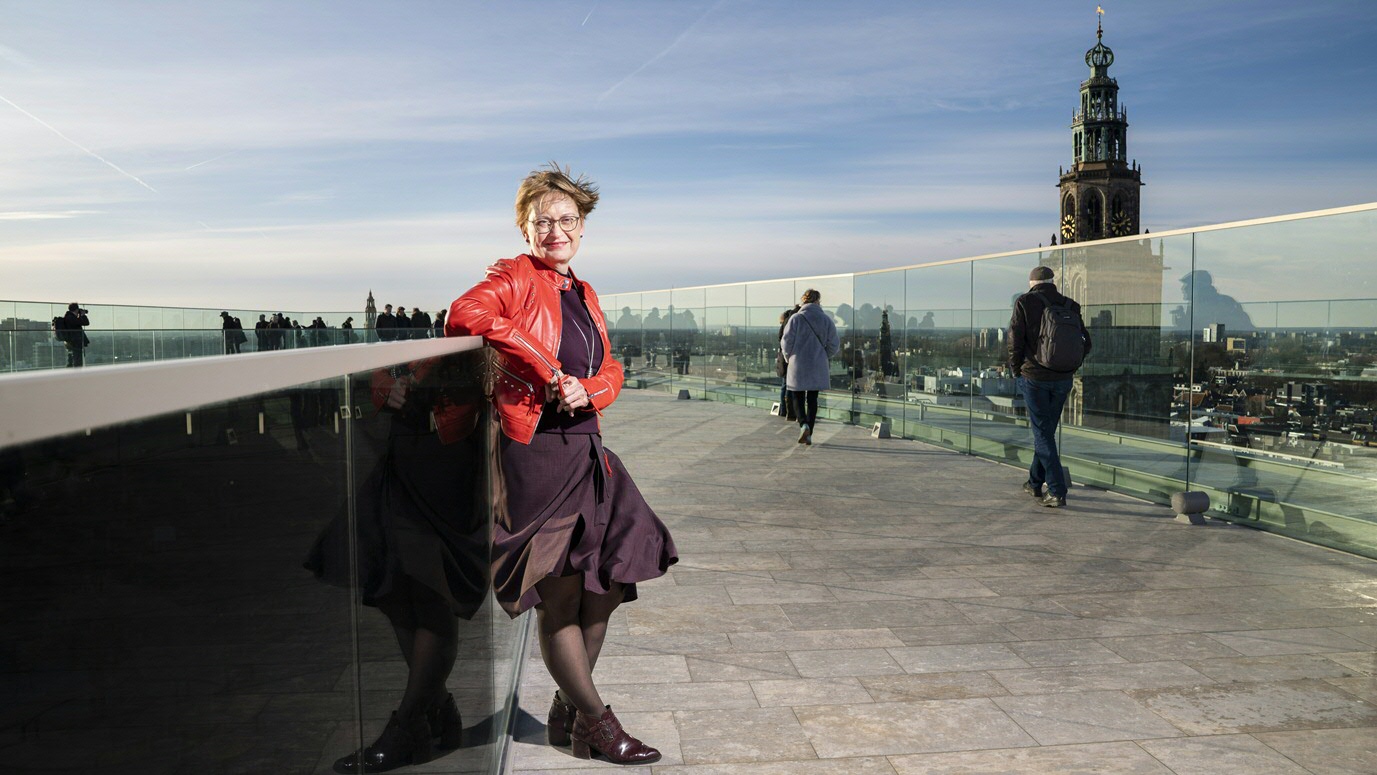
Een stap terug
De recent aangescherpte coronamaatregelen voelen als een stap terug, constateert collegevoorzitter Jouke de Vries. ‘Ik merk dat velen het moeilijk vinden om nog een keer de omslag te maken. Eén keer de universiteit sluiten is te doen, een tweede keer is veel moeilijker. De onzekerheid maakt dat de energie soms verdwijnt. Het is een lastige periode die veel veerkracht vraagt van medewerkers en studenten. Als bestuur proberen we zo veel mogelijk perspectief te schetsen. We willen de ruimte die er is om de universiteit open te houden maximaal benutten. Ik ben geen doemdenker, maar natuurlijk worstelen we daar mee.’
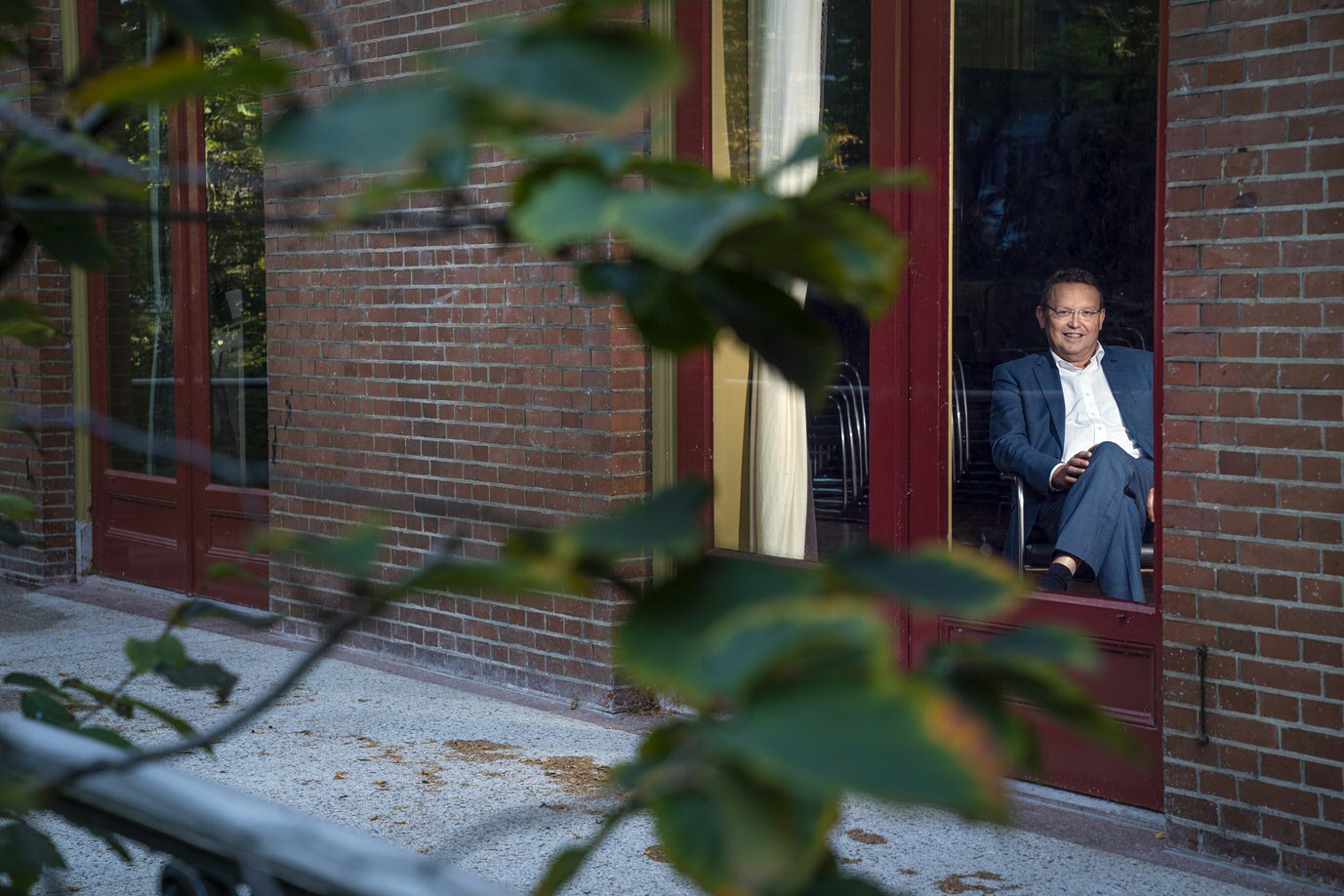
Ruimte voor ontmoeting
Wijmenga: ‘Het onderzoek en onderwijs moet zoveel mogelijk doorgaan. Tegelijkertijd werkt iedereen thuis, tenzij het echt niet anders kan. Maar in welke gevallen is het noodzakelijk om naar de universiteit te komen? Dat is een heel ingewikkelde vraag. Wij vinden het belangrijk te voorkomen dat medewerkers en studenten helemaal los raken van de universiteit. Er moet ruimte blijven voor ontmoeting, al is het maar op één dag in de week met enkele naaste collega’s of in kleine groepjes studenten. We zoeken bijvoorbeeld extra plekken waar studenten elkaar veilig kunnen ontmoeten. Juist omdat we ons realiseren dat het sociale aspect zo belangrijk is, willen we die interactie echt bevorderen.’
Dat betekent onder meer dat de universiteit investeert in het gebouw van de voormalige Open Universiteit, zegt Biemans. ‘Daar realiseren we op de begane grond ruimte voor activiteiten van studieverenigingen. En op de eerste etage creëren we extra studieplekken voor studenten, die komen na de herfstvakantie beschikbaar.’
Spagaat
Die inspanningen zijn gebaseerd op de kennis van vandaag, benadrukt Wijmenga. De recente stijging van het aantal besmettingen en de aangescherpte coronamaatregelen hebben ons geleerd hoe snel beleidsvoornemens achterhaald kunnen zijn. ‘Dat maakt de situatie voor iedereen ingewikkeld. Dat geldt voor studenten, docenten, onderzoekers, het ondersteunend en beheerspersoneel en bestuurders. Iedereen is ontzettend druk met de waan van de dag. Mede daarom hebben we een oproep gedaan aan de decanen om goed na te denken over dingen die nu even niet meer hoeven. Zelf ben ik namens het college trekker van het nieuwe Strategisch Plan 2021-2026. Voor veel collega’s is dat iets dat er naast de vaste werkzaamheden nog even bijkomt. Ik vind het soms bezwaarlijk om in deze situatie een extra beroep op collega’s te doen. Aan de andere kant merk ik dat zo’n project collega’s ook juist energie kan geven. Dat is een lastige spagaat.’
Besturen op krediet
Biemans, goed voor twintig dienstjaren aan de RUG, wijst op zijn kamer naar de tekening van de brand in het Academiegebouw in 1906. ‘Dat is een mooie metafoor. Net als de brandweermannen en omstanders daar moesten we in hoog tempo handelen. Totaal anders dan we gewend zijn in de universiteit, met goed voorbereide en uitgebreid besproken beleidsvoorstellen. We hechten in Groningen erg aan het decentrale karakter, met de faculteit als eigen eenheid. De vraag is of het in zo’n crisisstand nog lukt om de gemeenschap voldoende mee te nemen in de besluitvorming. Je neemt krediet op, zo ervaar ik dat. Dat is spannend. Het kan best zijn dat we besluiten nemen die achteraf niet passend blijken. Ik hoop dat medewerkers en studenten zien welke dilemma’s er zijn.’
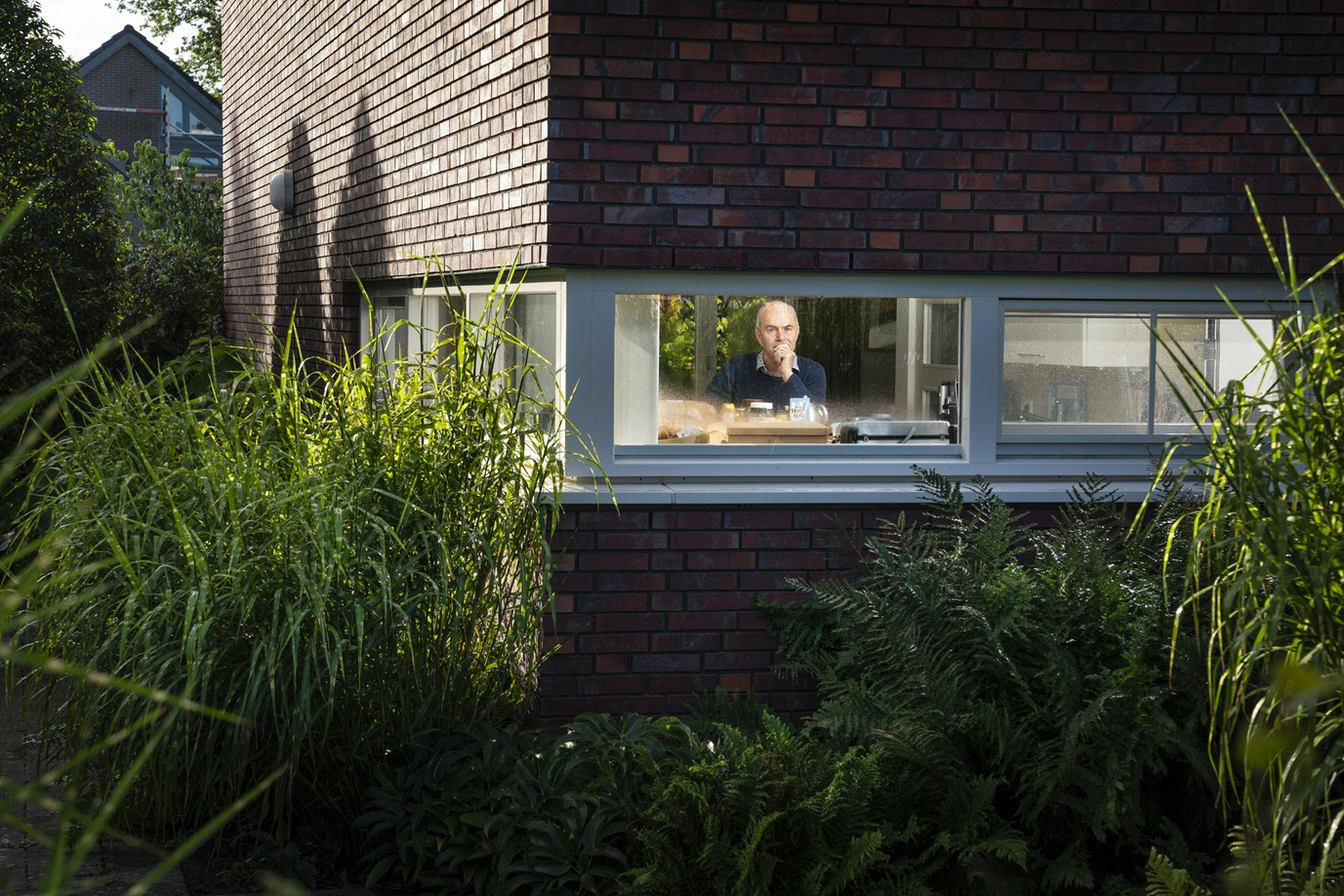
Brandhaard Groningen
Wijmenga, als astmapatiënt zelf behorend tot de risicogroep, zag Groningen veranderen van relatief veilige uitvalsbasis tot acute coronabrandhaard. ‘De stad was voor mij altijd een veilige plek. Ziekte, testen en quarantaine, dat leek iets van een andere wereld. Ik begrijp heel goed dat de coronamaatregelen vervelend zijn voor studenten. Maar ze zijn onvermijdelijk. We moeten oppassen voor een tweedeling in de maatschappij, met ouderen die straks de deur niet meer uit durven.’
Het virus zet de solidariteit tussen generaties op scherp, ervaart Biemans aan de keukentafel. ‘Mijn dochter studeert aan de medische faculteit. Die sloot van het ene op het andere moment. Voor een student bekent dat nogal wat. Als bestuurder denk ik: jongelui doe nou je best om je aan de regels te houden. Mijn dochter vertelt dan over haar studentenhuis, over de enorme sociale netwerken en grote overlap tussen groepen. Dat is gewoon hartstikke lastig voor ze, dat begrijp ik best. Tegelijkertijd kunnen studenten de basisregels best strikter naleven. Het is niet nodig om bij elkaar op schoot te zitten. In die gevallen ben ik een strenge man.’
Persoonlijk
Ook in hun persoonlijke levens liet het virus zijn sporen na. Biemans’ dementerende moeder woont in een verzorgingstehuis dat drie keer volledig op slot ging. Wijmenga zag drie maanden haar moeder niet. ‘Nu ziet ze ontzettend op tegen de winter. Dat is triest.’ De Vries werd in maart voor de eerste keer opa, maar corona zette ruw een streep door de geplande vlucht naar Los Angeles om kleinzoon Weston in de armen te sluiten. ‘Het is prachtig om pake te worden. Veel mensen worden veel harder getroffen door het virus. Dat besef ik heel goed. Maar als je naar mijn situatie vraagt; in onze garage staat nu een ongebruikte blauwe kinderstoel. Mijn vrouw en ik spreken er niet over, maar dat gemis is er natuurlijk wel.’
Universiteit van de toekomst
De Vries, die twee jaar geleden aantrad en plannen presenteerde voor een nieuwe strategie, interdisciplinaire samenwerking in schools en de Universiteit van het Noorden, ziet dat de huidige crisismodus veel ambities voor de langere termijn in de verdrukking brengt. ‘Toch moeten we ook in deze onzekere situatie blijven nadenken over de universiteit van de toekomst. Ik geloof niet dat we terugkeren naar hoe het was. Het virus zal uitdoven en de situatie zal normaliseren, maar studeren, werken en vervoer zal veranderen. Dat zet ons denken in gang. Ik heb veel vertrouwen in de creativiteit van medewerkers en studenten. Dat klinkt oubollig misschien, maar ik geloof erg in onze mensen en onze studenten. Wij hebben de veerkracht om hier doorheen te komen.’
De coronacrisis heeft iets heel snel afgebroken, zegt Biemans, maar we beginnen niet op nul. ‘We kunnen de fundamenten gebruiken om een nieuwe universiteit bouwen. Zo hebben we voor de zomer besloten 5 miljoen euro extra te investeren in het ondersteunen van docenten. Dat geld is onder meer bedoeld voor aanvullende ICT-voorzieningen en extra medewerkers die helpen bij het omzetten van het onderwijs van fysiek naar online. Het is aan ons om goede faciliteiten te bieden en de juiste mindset te vinden.’
